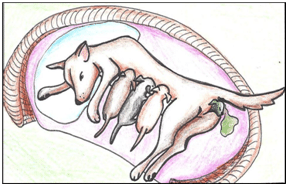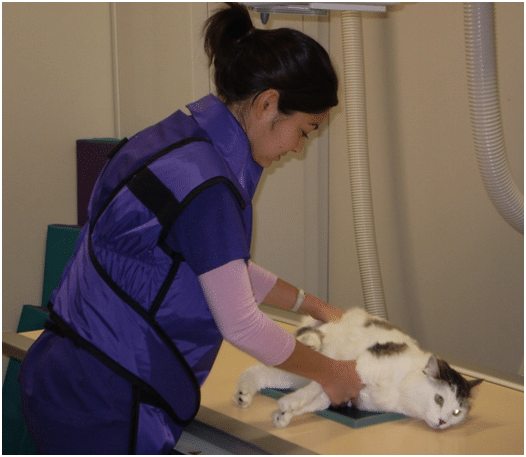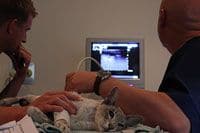Advice For Pets Having Trouble Giving Birth
Dystocia can be life threatening for cats and dogs

- Functional – due to weak contractions.
- Obstructive – due to large foetuses becoming stuck in the birth canal (either a small birth canal or large foetus, or malpositioned foetus.
Symptoms
- Foetus presented at vulva, but appears stuck.
- Constant, unproductive labour and contractions for 30 minutes with no puppy or kitten produced.
- Weak contractions over 2 – 3 hours with no puppy or kitten produced.
- More than 2 hours between puppies or kittens with no evidence of contractions.
- Discharge that looks like blood or pus, or green discharge before any puppies or kittens have been born.
- If the mother appears unwell (e.g. is vomiting or lethargic).
If you see any of these signs they are suggestive of dystocia, and you should seek veterinary attention immediately. Dystocia can be life threatening for the puppies, kittens and in some cases for the mother.
What to Expect at the Vet
Blood tests to diagnose the underlying cause if needed (for example to check glucose and calcium levels in the blood).
Possibly intravenous fluids to correct dehydration.
Intravenous or injectable medications to correct any metabolic or electrolyte abnormalities, and improve contractions.
Radiographs (x-rays) and or ultrasound to assess for foetal numbers and viability.
Surgical intervention (such as caesarean section) if indicated.
If your pet is experiencing dystocia, there is very little you can do to help at home.
During whelping, keep the mother-to-be in a quiet, dark and stress free area with minimal distractions. You should monitor labour carefully but try to avoid disturbing your pet. If at any stage you are concerned, contact your veterinarian.
Early intervention in the case of dystocia will give both mother and young the best chance of survival. If your pet experiences this problem during the day, you should go to your regular vet sooner rather than later to avoid having to go to your emergency hospital.




